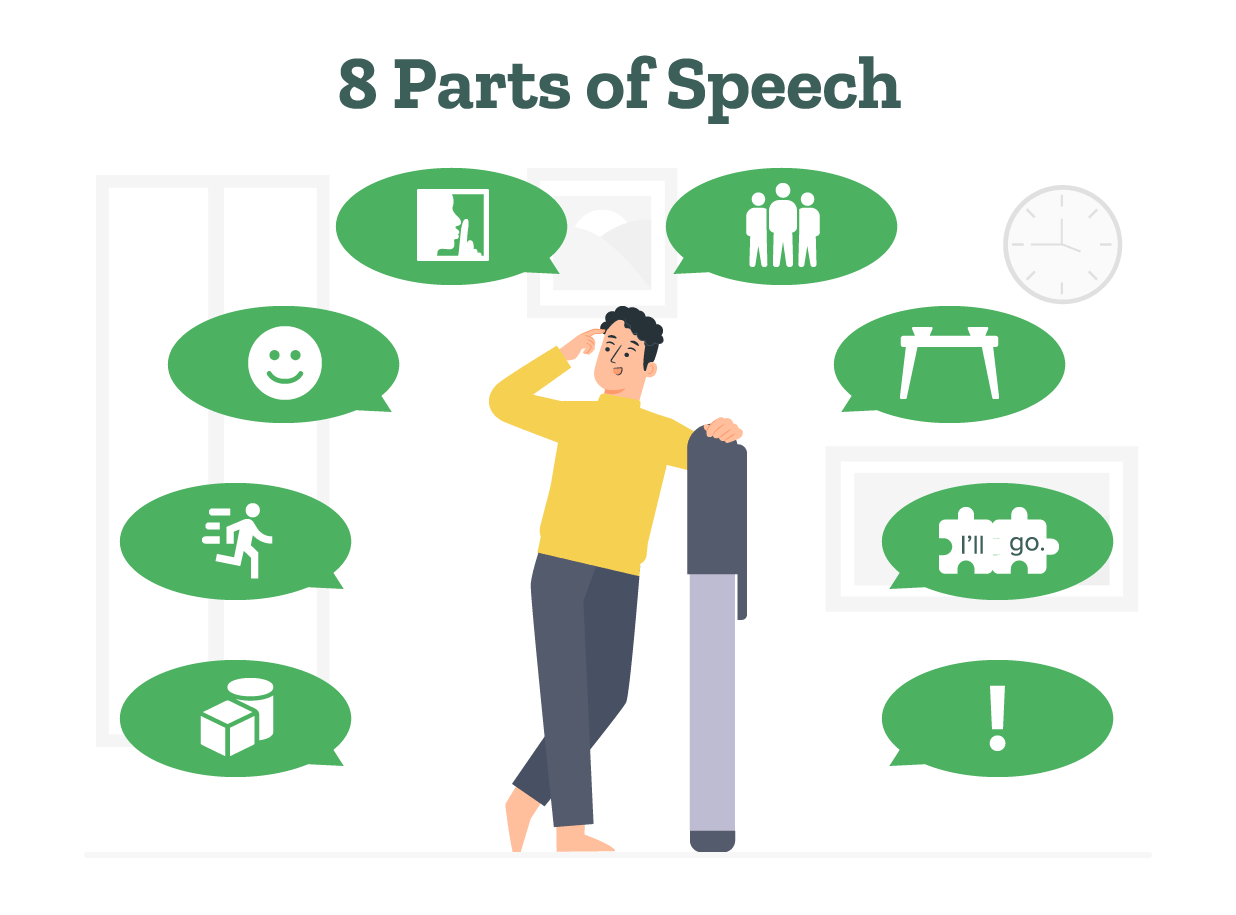The English language consists of various parts of speech, each serving a specific purpose in forming sentences. Understanding these parts of speech is essential for effective communication and writing. In this article, we will explore the eight parts of speech and their functions.
A noun is a word that represents a person, place, thing, or idea. It can be a concrete object like “book” or an abstract concept like “love.” Nouns can also be proper nouns, which refer to specific names like “John” or “Paris.”
2. Pronoun
Pronouns are words that replace nouns in a sentence to avoid repetition. Common pronouns include “he,” “she,” “it,” and “they.” Pronouns help make sentences more concise and fluid.
3. Verb
Verbs are action words that express an action or a state of being. They are essential in forming sentences and conveying meaning. Examples of verbs include “run,” “eat,” “sleep,” and “is.”
4. Adjective
Adjectives are words that describe or modify nouns. They provide more information about the noun, such as its size, color, or quality. Examples of adjectives include “big,” “beautiful,” “red,” and “happy.”
5. Adverb
Adverbs are words that modify verbs, adjectives, or other adverbs. They provide information about how, when, where, or to what extent an action is performed. Adverbs often end in “-ly,” such as “quickly,” “happily,” or “carefully.”
6. Preposition
Prepositions are words that show the relationship between a noun or pronoun and other words in a sentence. They indicate location, direction, time, or other relationships. Common prepositions include “in,” “on,” “at,” and “between.”
7. Conjunction
Conjunctions are words that connect words, phrases, or clauses in a sentence. They help create complex sentences and show the relationship between different ideas. Common conjunctions include “and,” “but,” “or,” and “because.”
8. Interjection
Interjections are words used to express emotions or feelings in a sentence. They are often followed by an exclamation mark and are used to convey surprise, excitement, or other strong emotions. Examples of interjections include “Wow!,” “Ouch!,” and “Yikes!”
Understanding the eight parts of speech is essential for mastering the English language and improving your writing skills. By recognizing and using these parts of speech effectively, you can create clear, coherent, and engaging sentences that convey your intended message.
